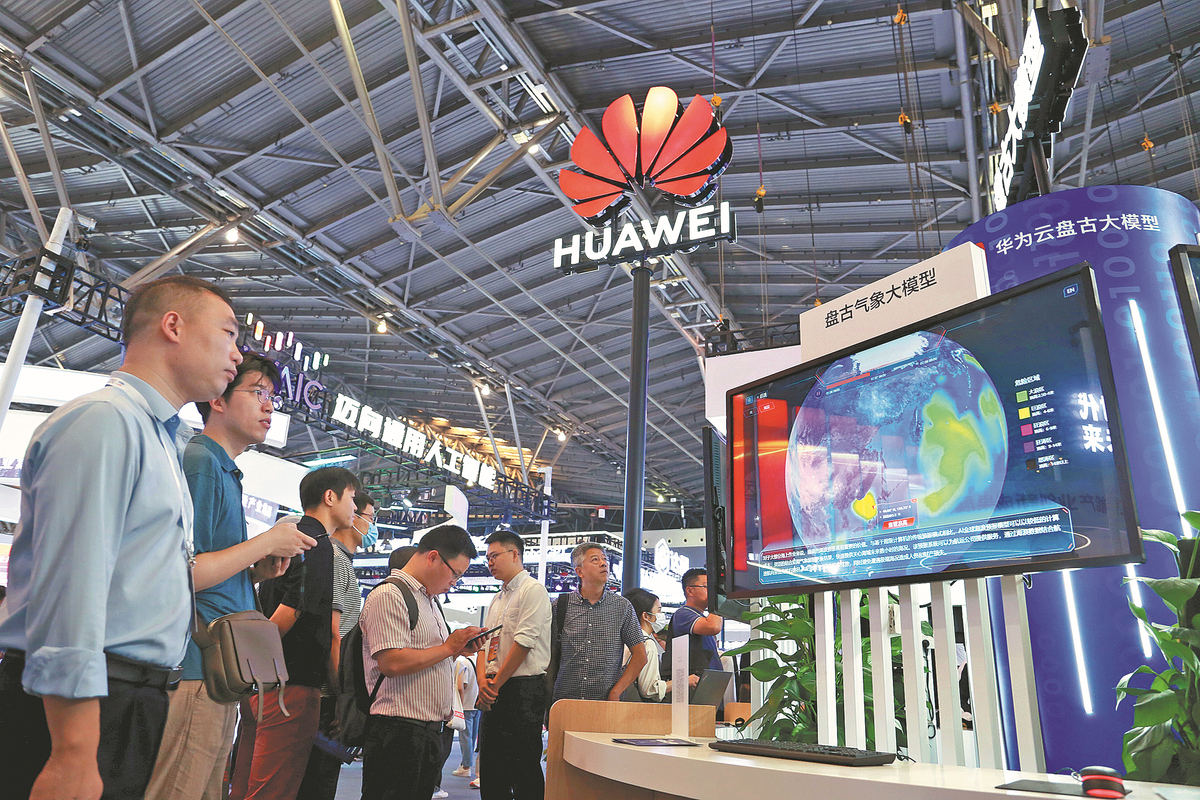Huawei unveils latest iteration of LLM

Huawei Technologies Co unveiled the latest version of its artificial intelligence large language model Pangu 3.0 on Friday, as part of a broader push to leverage AI in speeding up digital transformation across a wide range of sectors.
Large language models (LLMs) are the key technology behind ChatGPT, an AI chatbot developed by US-based AI research company OpenAI.
LLMs refer to computer algorithms fed with huge amounts of textual data for use in a variety of tasks, ranging from natural language processing to machine translation.
The Pangu Model 3.0 consists of three layers of architecture: L0 foundational LLM, L1 industry-specific model and L2 scenario-specific model, and this will help reshape thousands of industries, said Zhang Pingan, CEO of Huawei Cloud.
Pangu is already being used in more than 10 sectors such as finance, manufacturing, government affairs, power, coal mining, healthcare and railways, supporting the implementation of AI applications in over 400 business scenarios, the company said.
A paper about its breakthrough Pangu Weather AI model has been published by Nature, one of the top scientific journals in the world, it added.
The publication marks the first time that employees of a Chinese technology company have been the sole authors of a Nature paper, according to Nature Index.
The paper, which describes how to develop a precise and accurate global AI weather forecast system based on deep learning using 43 years of data, appeared in the prestigious journal on July 5.
Pangu Weather is the first AI prediction model to demonstrate a higher precision than traditional numerical weather forecast methods. The model allows 10,000 times more improvement in prediction speed, reducing global weather prediction time to just seconds.
The paper — Accurate medium-range global weather forecasting with 3D neural networks — provides independent verifications of these capabilities, Huawei said.
Chinese tech heavyweights such as Baidu Inc, Alibaba Group Holding Ltd and Tencent Holdings Ltd are all betting big on LLM technology. A string of startups have also emerged to launch their own LLMs.
On Friday, China officially launched the formulation of a national standard for testing LLMs.
The nation also announced the formation of the first standardization task team for LLMs at the sixth World Artificial Intelligence Conference in Shanghai.
The special team, headed by the Shanghai artificial intelligence innovation center, consists of six joint team leaders — Baidu, Alibaba Cloud, the cloud computing arm of Alibaba, iFlytek Co Ltd, 360 Security Technology Inc, Huawei Cloud, and the research institute of China Mobile.
Zhou Hongyi, founder of 360 Security Group, said only by empowering hundreds of industries can LLMs truly promote the revolution brought about by AI.
The real potential of LLMs comes from an enterprises-oriented market and the country should seize the opportunity of industrial development to develop LLMs, Zhou said.
China's LLM technology has developed rapidly along different technical routes in recent years, said Zhao Zhiyun, head of the Institute of Scientific and Technical Information of China.
Some pre-trained versions with industry influence have emerged in various fields including natural language processing and machine vision, Zhao added.
As of May, China had developed at least 79 AI large language models, or rivals of ChatGPT, according to a report released by ISTIC.
Invest in China Copyright © 2025 China Daily All rights Reserved
京ICP备13028878号-6
 京公网安备 11010502032503号
京公网安备 11010502032503号





